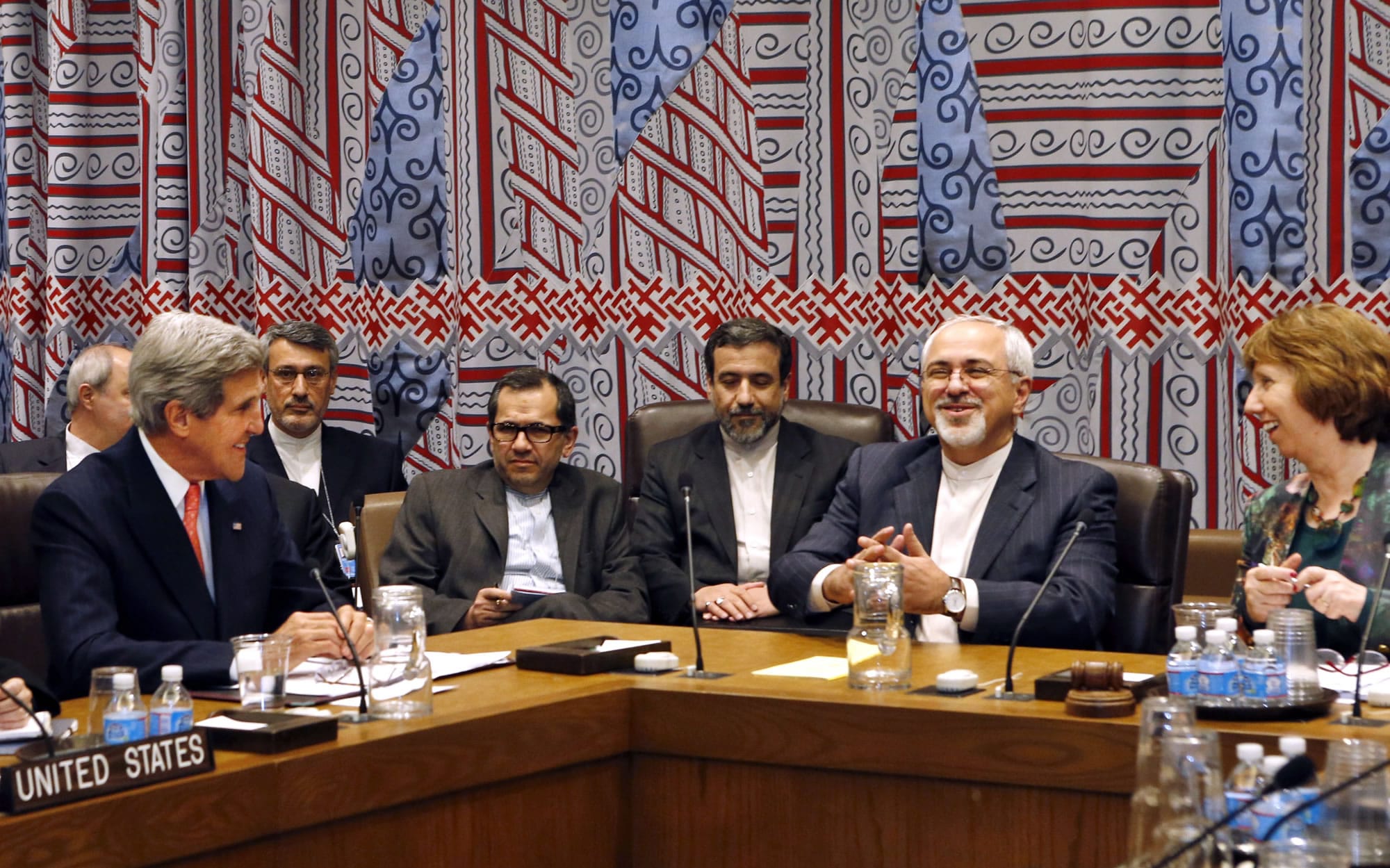WASHINGTON — Iran’s foreign minister said Sunday that his country was willing to negotiate with the United States over its nuclear program but that Washington needed to reciprocate by stopping the sanctions that have crippled Iran’s economy.
Taking a tone that was conciliatory at times but mainly tough, Mohammad Javad Zarif said on ABC’s “This Week” that the U.S. and Iran had taken the “first step in removing the tensions, doubts and misgivings that the two sides have had about each other for the last 30-some years.” Zarif met with U.S. Secretary of State John Kerry this past week in New York, and President Barack Obama spoke by phone Friday with Iranian President Hassan Rouhani, the countries’ first direct contact at that level since Iran’s 1979 Islamic revolution.
Zarif also said Iranian officials do not believe the Holocaust is a myth. A statement referring to the “myth of the massacre of Jews” in a speech by the country’s supreme leader, Ayatollah Ali Khamenei, is a “bad translation,” he said.
“The Holocaust is not a myth. Nobody’s talking about a myth,” Zarif said, when asked about the quotation. “If it’s there,” he said, “it’s a bad translation, and it’s translated out of context.
“This is the problem when you translate something from Persian to English, you may lose something, as the film goes, ‘Lost in Translation,’ you may lose some of the meaning.”
The “Holocaust was a heinous crime, it was a genocide, it must never be allowed to be repeated, but that crime cannot be and should not be a justification to trample the rights of the Palestinian people for 60 years,” he said.
Last week, when Rouhani made a comment in an interview on CNN in which he said he accepted the Holocaust as historical fact, some Iranian media outlets connected to hard-line factions used the translation argument in the other direction, arguing CNN misconstrued Rouhani’s words. His predecessor as president, Mahmoud Ahmadinejad, publicly questioned the reality of the Holocaust several times, one of several moves that deepened Israeli fears of Iran’s intentions.
Zarif also insisted that Tehran never had military intentions with its uranium enrichment and other nuclear activities. “Iran is prepared to start negotiating” on the issue, he said, adding that the United States also must do certain things, including halting what he contended were “illegal sanctions against Iran that are targeting ordinary Iranians.”
Iran has been hit with sanctions from the United Nations’ Security Council as well as additional measures aimed at its oil and banking sectors imposed by the U.S. and the European Union.



